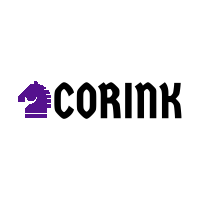Huawei could turn the page on Google services, the company confirms it will be able to do so if the situation does not get better. Considerable investment is being made to develop alternatives to YouTube, Google Maps, Chrome and other popular Google apps.
Original article from January 31 – 12:55 p.m.:
Huawei has just contacted us and wanted to clarify its position regarding the Google ecosystem on its phones. Nothing that really contradicts our article published yesterday, but that delivers some nuances. Here is the official statement of the Chinese company: "A free version of the operating system and The Android ecosystem remains our preference, however if we could not continue to use it, we have the ability to develop our own operating system and ecosystem."
Original article from January 30 – 5:37 p.m.:
It's been several months since Huawei lost its Android license which now deprives it of Google apps. The automaker now has two options: develop alternative solutions as soon as possible or wait for the defusing of the crisis with the United States, an option that now seems perilous, as the Trump administration is determined to maintain the status quo. The evidence is that no points about the manufacturer are included in the recent U.S.-China trade agreement.
Like the excellent Mate 30 Pro, Huawei's upcoming P40 and P40 Pros are likely to fall victim to US sanctions. The manufacturer is doomed to fill the void left by Google applications. According to the New York Times, Huawei is working to replace YouTube, Chrome, Google Search and others as soon as possible.
A real challenge
This is a "very difficult task for Huawei," President Guo Ping was quoted as saying by the New York Times. The company announced a $1.5 billion investment in the development of these applications. TomTom recently announced that it has reached an agreement with Huawei for its alternative to Google Maps.
Read also: Huawei has already created an alternative to Google Maps and Gmail
In addition, at various developer conferences in New Delhi, Warsaw and Sao Paulo, Huawei has promised strong rewards to publishers who will bail out its App Gallery store. This is a crucial step on the road to transition to Harmony OS.
According to several experts, the mission promises to be extremely complicated. Creating credible alternatives to Google apps is no small feat. Before Huawei, other companies like Nokia and Microsoft tried to create their own mobile ecosystem. The result, we all know it. Consumers are committed to "the well-known applications their peers use," says Thomas Husson, an analyst with Forrester.
"Convincing developers to join a new ecosystem requires considerable investment and a lot of marketing effort." In China, users are already used to local platforms as YouTube, Google, Facebook and other Western services are banned. In Europe and elsewhere in the world, Huawei will have to climb a mountain to impose its own solutions.
Source: New York Times
